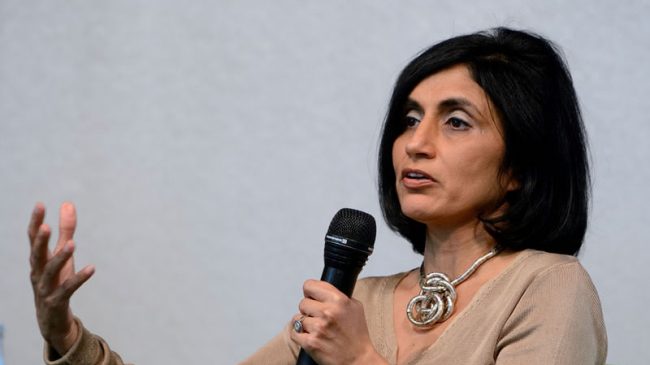Barack Obama says he believes in universal preschool and if he’s elected president he’ll pump “billions of dollars into early childhood education.” Universal preschool is now second only to universal health care on the liberal policy wish list. Democratic governors across the country — including in Illinois, Arizona, Massachusetts and Virginia — have made a major push to fund universal preschool in their states.
But is strapping a backpack on all 4-year-olds and sending them to preschool good for them? Not according to available evidence.
“Advocates and supporters of universal preschool often use existing research for purely political purposes,” says James Heckman, a University of Chicago Noble laureate in economics whose work Mr. Obama and preschool activists routinely cite. “But the solid evidence for the effectiveness of early interventions is limited to those conducted on disadvantaged populations.”
Mr. Obama asserted in the Las Vegas debate on Jan. 15 that every dollar spent on preschool will produce a 10-fold return by improving academic performance, which will supposedly lower juvenile delinquency and welfare use — and raise wages and tax contributions. Such claims are wildly exaggerated at best.
In the last half-century, U.S. preschool attendance has gone up to nearly 70% from 16%. But fourth-grade reading, science, and math scores on the National Assessment of Educational Progress (NAEP) — the nation’s report card — have remained virtually stagnant since the early 1970s.
Preschool activists at the Pew Charitable Trust and Pre-K Now — two major organizations pushing universal preschool — refuse to take this evidence seriously. The private preschool market, they insist, is just glorified day care. Not so with quality, government-funded preschools with credentialed teachers and standardized curriculum. But the results from Oklahoma and Georgia — both of which implemented universal preschool a decade or more ago — paint an equally dismal picture.
A 2006 analysis by Education Week found that Oklahoma and Georgia were among the 10 states that had made the least progress on NAEP. Oklahoma, in fact, lost ground after it embraced universal preschool: In 1992 its fourth and eighth graders tested one point above the national average in math. Now they are several points below. Ditto for reading. Georgia’s universal preschool program has made virtually no difference to its fourth-grade reading scores. And a study of Tennessee’s preschool program released just this week by the nonpartisan Strategic Research Group found no statistical difference in the performance of preschool versus nonpreschool kids on any subject after the first grade.
What about Head Start, the 40-year-old, federal preschool program for low-income kids? Studies by the Department of Health and Human Services have repeatedly found that although Head Start kids post initial gains on IQ and other cognitive measures, in later years they become indistinguishable from non-Head Start kids.
Why don’t preschool gains stick? Possibly because the K-12 system is too dysfunctional to maintain them. More likely, because early education in general is not so crucial to the long-term intellectual growth of children. Finland offers strong evidence for this view. Its kids consistently outperform their global peers in reading, math and science on international assessments even though they don’t begin formal education until they are 7. Subsidized preschool is available for parents who opt for it, but only when their kids turn 6.
If anything, preschool may do lasting damage to many children. A 2005 analysis by researchers at Stanford University and the University of California, Berkeley, found that kindergartners with 15 or more hours of preschool every week were less motivated and more aggressive in class. Likewise, Canada’s C.D. Howe Institute found a higher incidence of anxiety, hyperactivity and poor social skills among kids in Quebec after universal preschool.
The only preschool programs that seem to do more good than harm are very intense interventions targeted toward severely disadvantaged kids. A 1960s program in Ypsilanti, Mich., a 1970s program in Chapel Hill, N.C., and a 1980s program in Chicago, Ill., all report a net positive effect on adult crime, earnings, wealth and welfare dependence for participants. But the kids in the Michigan program had low IQs and all came from very poor families, often with parents who were drug addicts and neglectful.
Even so, the economic gains of these programs are grossly exaggerated. For instance, Prof. Heckman calculated that the Michigan program produced a 16-cent return on every dollar spent — not even remotely close to the $10 return that Mr. Obama and his fellow advocates bandy about.
Our understanding of the effects of preschool is still very much in its infancy. But one inescapable conclusion from the existing research is that it is not for everyone. Kids with loving and attentive parents — the vast majority — might well be better off spending more time at home than away in their formative years. The last thing that public policy should do is spend vast new sums of taxpayer dollars to incentivize a premature separation between toddlers and parents.
Yet that is precisely what Mr. Obama would do. His “Zero-to-Five” plan would increase federal outlays for early education by $10 billion — about 50% of total government spending on preschool — and hand block grants to states to implement universal preschool. This will make the government the dominant source of funding in the early education marketplace, vastly outpacing private spending.
If Mr. Obama is serious about helping children, he should begin by fixing what is clearly broken: the K-12 system. The best way of doing that is by building on programs with a proven record of success. Many of these involve giving parents control over their own education dollars so that they have options other than dysfunctional public schools. The Obamas send their daughters to a private school whose annual fee in middle school runs around $20,000. Other parents deserve such choices too — not promises of subsidized preschool that they may not want and that may be bad for their kids.


